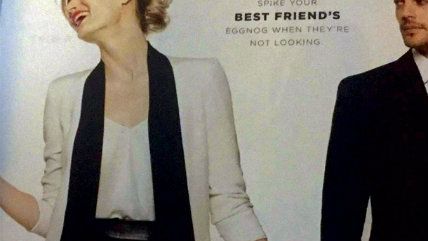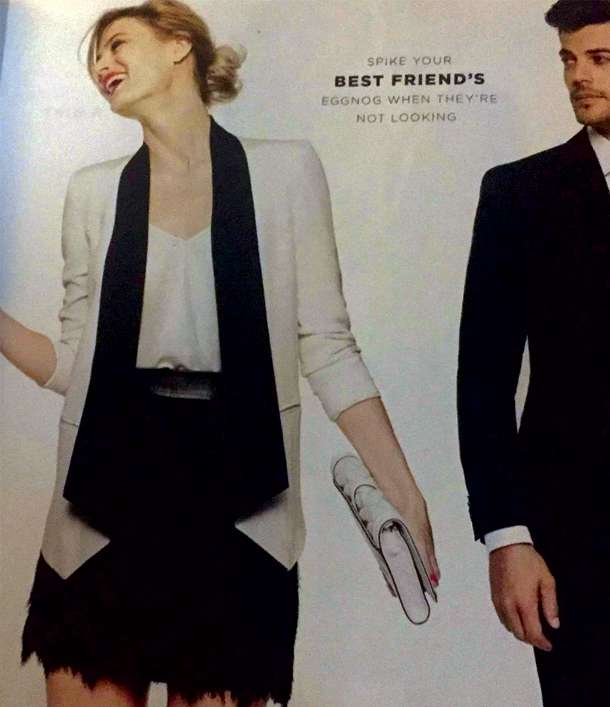Culture Police Target Bloomingdale's Holiday Catalog
Seasonal outrage is not just for Christians. It has a secular face as well.


Seasonal outrage is not just for Christians. It has a secular face as well.
Last week, the concerned citizens of Twitter strong-armed a nationwide chain, Bloomingdale's, into issuing a public apology.
The chain's offense was a troublesome layout in its holiday catalog, featuring a carefree blonde in a party-skirt and jacket ensemble.
The irreverent caption, "Spike your best friend's eggnog when they're not looking," triggered feminist outrage, snarky allusions to Bill Cosby, and unkind comments about the ad's "creepy" male model.
But I see something different in the Bloomingdale's ad. If you take the text literally, it is—of course—terrible advice, and were this an ad for a popular rum, "Spike your best friend's eggnog" could never have appeared in 2015.
But instead it appears in the context of a whimsical clothing catalog. The notional spiking of imaginary eggnog recalls childhood memories of things placed under the tree while we're "not looking."
Besides, the "best friend" storyline needn't be read as retrograde, sexual, or predatory. Maybe the male friend's drink was spiked by the female in the ad. The laughter on her face suggests a prank, and he appears to be the cautious one.
The ad is mischievous, combining an old social taboo (non-consensual alcohol) with a new social imperative: the gender-fluid use of they to override she and he. You can think of the ad as a kind of Rorschach test. Quite a few see a traditional scenario with 1950s gender roles, i.e., men tricking girls into having sex. But using "they" as a singular pronoun challenges that idea. Grammatically awkward as it may be, "they" indicates unclear roles: perhaps our male friend was being toyed with.
There is no right or wrong way to read this ad, even if a thousand others on social media are seeing through one pair of eyes.


Show Comments (6)